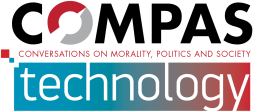
Overview
Artificial intelligence (AI) has taken over many parts of our lives. With the release of generative AI systems like ChatGPT, it will soon take over even more of our lives. But is that a good thing? The history of the development and implementation of AI systems has shown that even when computer scientists create AI systems with the best of intentions, those systems fail to behave in ways that align with what we value most. How can we bring the behavior of generative AI systems into line with what we value?

Speakers
Kevin Scharp (Illinois Urbana-Champaign, Philosophy)

Kevin Scharp is Professor of Philosophy at the University of Illinois Urbana-Champaign. He received a B.S. in Mathematics from Washington University in St. Louis, and an M.A. in Philosophy from the University of Wisconsin-Milwaukee. In 2005, he received a Ph.D. in Philosophy from the University of Pittsburgh. From 2005-2015, he was Assistant, Associate, and Full Professor of Philosophy at the Ohio State University. From 2016-2021, he was Reader in Philosophy at the University of St. Andrews, and for five of those years, he was Director of the Arché Philosophical Research Center, in which he also supervised the Conceptual Engineering Research Seminar. In 2022, he was a member of the Ethics of Disruptive Technology project at the University of Twente in the Netherlands. His most recent research focuses on artificial intelligence and machine learning. His other research includes conceptual engineering, the theory of truth, metaethics and normative theory, the philosophy of science, and the history of analytic philosophy. His publications include Replacing Truth, Semantics for Reasons (co-authored with Bryan R. Weaver), “The End of Vagueness: Technological Epistemicism, Surveillance Capitalism, and Explainable Artificial Intelligence” (co-authored with Alison Duncan Kerr), and “Conceptual Disruption and The Ethics of Technology”. At Illinois, he teaches the undergraduate class “Minds and Machines”, which is offered annually.
Micha Elsner (Ohio State, Linguistics)

Micha Elsner is Associate Professor of Linguistics at the Ohio State University. He received a B.Sc. in Computer Science and a B.A. in Classics from the University of Rochester, and an M.A. in Computer Science from Brown University. In 2011, he received a Ph.D. in Computer Science from Brown University. From 2011-2012, he was a Postdoctoral Researcher in the School of Informatics at the University of Edinburgh. He is also a member of OSU’s Translational Data Analytics Institute’s Responsible Data Science community of practice. His research focuses on computational models of language learning, primarily phonetics, phonology, and morphology. His publications include “Translating a Low-Resource Language Using GPT-3 and a Human-Readable Dictionary”, “Exploring How Generative Adversarial Networks Learn Phonological Representations”, and “Acquiring Language from Speech by Learning to Remember and Predict”. At OSU, he developed and teaches the undergraduate class "Ethics of Language Technology", which is now being offered for the third time.
Moderator:

Bryan Weaver (Ohio State, Computer Science and Engineering; CEHV Steering Committee)
